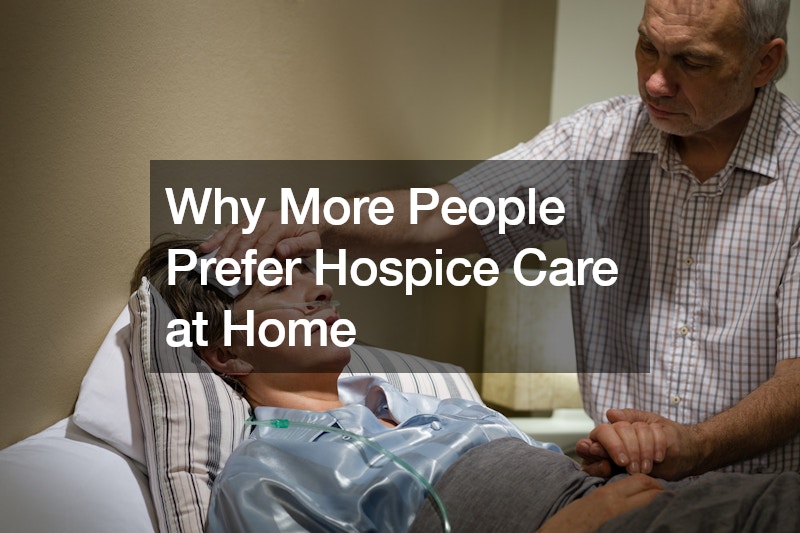
In the realm of end-of-life care, a significant shift is underway, with more individuals expressing a desire to spend their final days in the comfort of their own homes rather than in hospitals. This inclination towards hospice care at home is driven by a desire for autonomy, comfort, and quality of life in the closing chapters of one’s journey.
2. Research Insights: Living Longer and Better Quality Lives
Recent studies, such as one focused on terminal cancer patients in Japan, reveal that those who opt for hospice care at home tend to live significantly longer and report better quality of life compared to hospital-based care.
This challenges the traditional notion that hospitals are the default setting for terminal care, emphasizing the profound impact of familiar surroundings on a patient’s well-being.
3. Shirley’s Story: Finding Solace at Home
The story of Shirley, facing terminal cancer, exemplifies the preference for hospice care at home. Choosing to receive care in her familiar environment allowed Shirley to maintain a sense of normalcy, participate in communal activities, and stay connected with loved ones, reflecting the growing sentiment for dignity, comfort, and control over one’s final days.
4. Autonomy and Dignity: The Appeal of Home-Based Care
Central to the appeal of hospice care at home is the notion of maintaining autonomy and dignity. Patients can make choices aligned with their values, dictate routines, and receive personalized care tailored to their needs, offering a semblance of control amidst uncertainty.
5. Emotional and Psychological Well-being
Hospice care at home goes beyond physical comfort, encompassing emotional and psychological well-being. Being surrounded by loved ones and familiar surroundings provides immeasurable comfort and solace, particularly for patients with conditions like Alzheimer’s disease.
6. Benefits for Families and Caregivers
The benefits of hospice care at home extend to families and caregivers, fostering meaningful connections and creating lasting memories. Interdisciplinary support, including medical professionals and counselors, addresses the holistic needs of patients and their families.
7. Addressing Misconceptions
Despite its advantages, misconceptions may deter individuals from choosing home-based hospice care. However, research suggests that it can provide comprehensive medical support while prioritizing patient comfort and well-being.
8. Economic and Societal Implications
Delving into economic and societal implications, home-based care proves to be more cost-effective and fosters a sense of connectedness and continuity within communities, promoting empathy, compassion, and dignity.
9. Role of Technology
Advancements in technology, such as telemedicine and remote monitoring, support hospice care at home, enabling greater access to medical expertise and maintaining vital connections with healthcare providers and loved ones.
10. Response to the COVID-19 Pandemic
The COVID-19 pandemic has underscored the importance of home-based care, leading healthcare organizations to expand their programs to preserve patient safety and well-being amidst public health crises.
11. Conclusion: Embracing Patient-Centered Excellence
The preference for hospice care at home reflects a broader shift towards patient-centered end-of-life care, ensuring that individuals receive the dignity, comfort, and support they deserve in their final journey home. Home becomes the sanctuary where the heart finds profound solace, honoring individual choices and fostering compassionate communities in the twilight of life.
Expanding upon the significance of hospice care at home, it’s evident that this trend represents more than just a preference; it embodies a fundamental shift towards patient-centered end-of-life care. By choosing to spend their final days in familiar surroundings, individuals like Shirley are reclaiming autonomy, dignity, and comfort in their journey towards the inevitable. The notion of home as a sanctuary becomes particularly poignant in the context of end-of-life care, where patients seek solace and familiarity amidst uncertainty.
As the evidence mounts in favor of home-based hospice care, it is imperative for healthcare systems to recognize and support the diverse needs and preferences of individuals facing life-limiting illnesses. This entails not only expanding access to home-based hospice programs but also ensuring that these programs are equipped to provide comprehensive medical, emotional, and spiritual support to patients and their families.
Moreover, the growing preference for hospice care at home underscores the need for continued research and innovation in end-of-life care. By exploring new models of care delivery, leveraging technological advancements, and promoting interdisciplinary collaboration, healthcare providers can further enhance the quality and accessibility of home-based hospice services.
In conclusion, the growing preference for hospice care at home reflects a broader shift towards patient-centered end-of-life care. By choosing to spend their final days in familiar surroundings, individuals like Shirley are reclaiming autonomy, dignity, and comfort in their journey towards the inevitable. As the evidence mounts in favor of home-based hospice care, it is imperative to recognize and support the diverse needs and preferences of individuals facing life-limiting illnesses. After all, in the twilight of life, home is where the heart finds its most profound solace.
.





